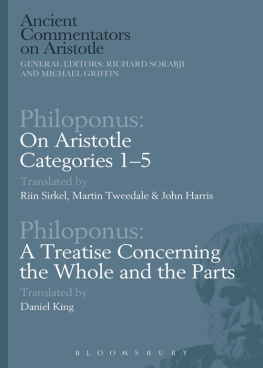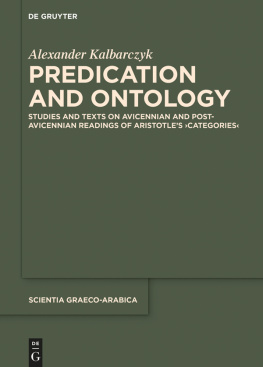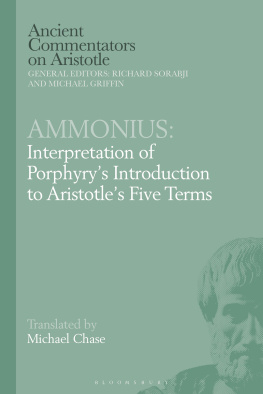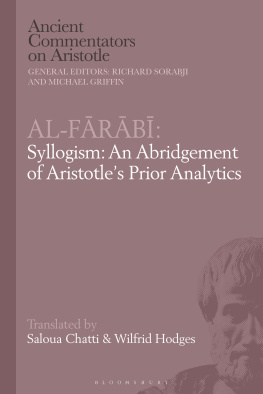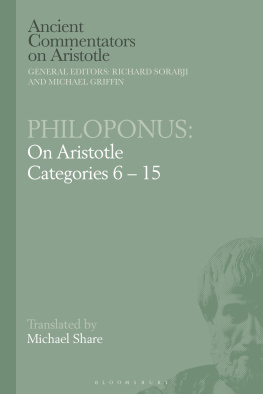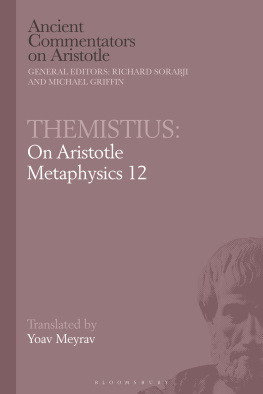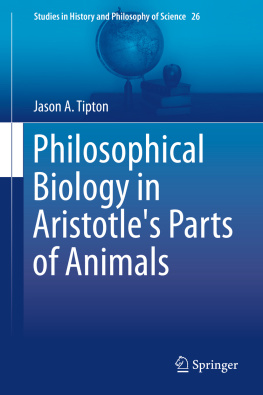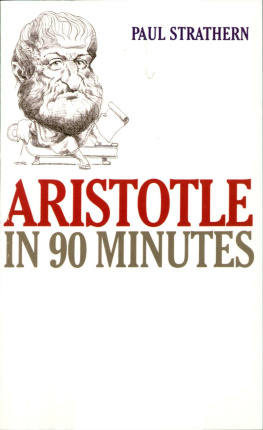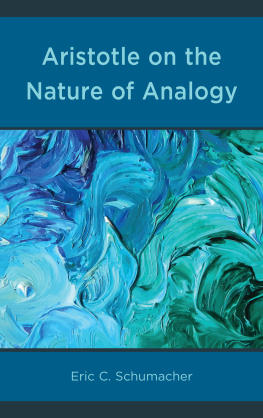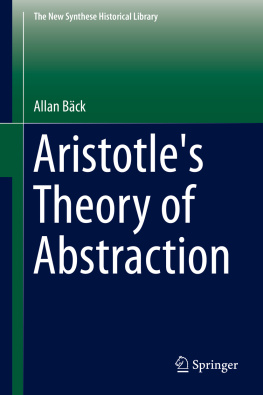Philoponus - On Aristotle Categories 1–5; A Treatise Concerning the Whole and the Parts
Here you can read online Philoponus - On Aristotle Categories 1–5; A Treatise Concerning the Whole and the Parts full text of the book (entire story) in english for free. Download pdf and epub, get meaning, cover and reviews about this ebook. year: 2015, publisher: Bloomsbury Academic, genre: Science. Description of the work, (preface) as well as reviews are available. Best literature library LitArk.com created for fans of good reading and offers a wide selection of genres:
Romance novel
Science fiction
Adventure
Detective
Science
History
Home and family
Prose
Art
Politics
Computer
Non-fiction
Religion
Business
Children
Humor
Choose a favorite category and find really read worthwhile books. Enjoy immersion in the world of imagination, feel the emotions of the characters or learn something new for yourself, make an fascinating discovery.
- Book:On Aristotle Categories 1–5; A Treatise Concerning the Whole and the Parts
- Author:
- Publisher:Bloomsbury Academic
- Genre:
- Year:2015
- Rating:4 / 5
- Favourites:Add to favourites
- Your mark:
On Aristotle Categories 1–5; A Treatise Concerning the Whole and the Parts: summary, description and annotation
We offer to read an annotation, description, summary or preface (depends on what the author of the book "On Aristotle Categories 1–5; A Treatise Concerning the Whole and the Parts" wrote himself). If you haven't found the necessary information about the book — write in the comments, we will try to find it.
Philoponus On Aristotle Categories 1-5 discusses the nature of universals, preserving the views of Philoponus teacher Ammonius, as well as presenting a Neoplatonist interpretation of Aristotles Categories. Philoponus treats universals as concepts in the human mind produced by abstracting a form or nature from the material individual in which it has its being.
The work is important for its own philosophical discussion and for the insight it sheds on its sources. For considerable portions, On Aristotle Categories 1-5 resembles the wording of an earlier commentary which declares itself to be an anonymous record taken from the seminars of Ammonius. Unlike much of Philoponus later writing, this commentary does not disagree with either Aristotle or Ammonius, and suggests the possibility that Philoponus either had access to this earlier record or wrote it himself.
This edition explores these questions of provenance, alongside the context, meaning and implications of Philoponus work. The English translation is accompanied by an introduction, comprehensive commentary notes, bibliography, glossary of translated terms and a subject index. The latest volume in the Ancient Commentators on Aristotle series, the edition makes this philosophical work accessible to a modern readership.
Philoponus was a Christian writing in Greek in 6th century CE Alexandria, where some students of philosophy were bilingual in Syriac as well as Greek. In this Greek treatise translated from the surviving Syriac version, Philoponus discusses the logic of parts and wholes, and he illustrates the spread of the pagan and Christian philosophy of 6th century CE Greeks to other cultures, in this case to Syria.
Philoponus, an expert on Aristotles philosophy, had turned to theology and was applying his knowledge of Aristotle to disputes over the human and divine nature of Christ. Were there two natures and were they parts of a whole, as the Emperor Justinian proposed, or was there only one nature, as Philoponus claimed with the rebel minority, both human and divine? If there were two natures, were they parts like the ingredients in a chemical mixture? Philoponus attacks the idea. Such ingredients are not parts, because they each inter-penetrate the whole mixture. Moreover, he abandons his ingenious earlier attempts to support Aristotles view of mixture by identifying ways in which such ingredients might be thought of as potentially preserved in a chemical mixture. Instead, Philoponus says that the ingredients are destroyed, unlike the human and divine in Christ.
This English translation of Philoponus treatise is the latest volume in the Ancient Commentators on Aristotle series and makes this philosophical work accessible to a modern readership. The translation in each volume is accompanied by an introduction, comprehensive commentary notes, bibliography, glossary of translated terms and a subject index.
Philoponus: author's other books
Who wrote On Aristotle Categories 1–5; A Treatise Concerning the Whole and the Parts? Find out the surname, the name of the author of the book and a list of all author's works by series.

